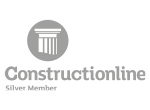Our Services: Due Diligence Surveys
Due Diligence Surveys are valuable exercises to establish the condition of a building before purchase or sale of a property. Synergy have significant experience in supporting clients with these exercises across a wide range of commercial property.
Frequently asked questions about Due Diligence Surveys
- What is the purpose of a Due Diligence Survey?
- How can a Due Diligence Survey save a client money?
- What is included as part of the Survey?
- What should be considered before the inspection?
- What are the common pitfalls?
- What is the outcome of a Due Diligence Survey?
1. What is the purpose of a Due Diligence Survey?
The purpose of a due diligence Survey is to provide a detailed analysis of a property’s structure and condition. It is carried out for a vendor or potential buyer to highlight any possible defects, maintenance or statutory compliance issues which need to be resolved to ensure a building is brought to a good and compliant standard before sale/purchase. It also provides an understanding of whether a building would be suitable for a particular type of use.
2. How can a Due Diligence Survey save a client money?
Highlighting possible defects and legal compliance issues may help a buyer decide whether or not to purchase a property. It may also provide a tool to negotiate the purchase price depending on its condition. Conversely for a vendor a due diligence survey puts them in the best position to highlight any issues which may threaten or delay the transaction or which might even terminate the deal altogether.
3. What is included as part of the Survey?
In addition to assessing a building’s fabric the survey also includes a review of the condition of deleterious materials such as asbestos, advice on potential dilapidations and advice on the necessary statutory requirements depending on the future use of the building.
4. What should be considered before the inspection?
Before a survey is carried out access arrangements should be reviewed. For example, if there is unsafe access to view roofs the use of drones and cherry pickers may be required.
Before an inspection it is also important to review any relevant existing documentation. This could include asbestos reports, drainage reports and even specialist reports on any key technical building components.
5. What are the common pitfalls?
It is always important to understand the reason why a client may wish to have a Due Diligence Survey as this will help the surveyor tailor the survey and report around the client’s needs. Fully understanding the client brief and scope is essential to ensure the survey meets a client’s requirements and does not fall short. Included in the due diligence survey is a cost plan which will provide the costs for immediate defects and cyclical maintenance costs over a set period of time.
6. What is the outcome of a Due Diligence Survey?
Due to the size of commercial properties, the associated costs in ensuring a building is kept to a good standard can be much higher than expected.
We carried out a due diligence Survey for an organisation enquiring on a commercial property. The survey highlighted a back log of various maintenance issues: damp penetration, site security issues, non-compliance with The Equality Act 2010 and various fire safety compliance issues. This provided the purchaser with enough information to understand that the potential costs of the property were much higher than originally anticipated which assisted with negotiations on the purchase price.








